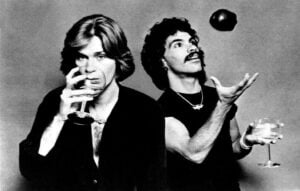The One Christine McVie Song That Made All of Fleetwood Mac Smile

Youtube / CK WOOD Music Productions
When Christine McVie joined Fleetwood Mac in 1970, she signed on for more than just music; she committed to a soap opera that peaked during the recording of the 1977 masterpiece, Rumours. As the band dealt with several lineup changes, the Rumours sessions were defined by the dramatic dissolution of personal relationships: McVie’s marriage to bassist John McVie ended just as the volatile relationship between Stevie Nicks and Lindsey Buckingham imploded. Drummer Mick Fleetwood was also navigating his own marital turmoil, turning the recording studio into a high-tension pressure cooker.
Finding Anchor in the Music
Amid the endless feuding, McVie credited two forces for preventing the group’s total collapse: Mick Fleetwood’s efforts and their collective artistic purpose. Despite the constant animosity, the band members found a perverse way to bond through their craft.
“Mick was sort of holding everything together,” she told Rolling Stone in 1997. “But the music was, also. The music was very rewarding. It was very powerful to be there recording these songs.”
Yet, the tension was palpable. Nicks and Buckingham frequently shouted at each other, while Nicks and McVie often sequestered themselves in hotel rooms to avoid their ex-partners. The relentless friction began to wear on everyone.
The Half-Hour Wish for Happiness
It was in this atmosphere of emotional exhaustion that Christine McVie penned “Songbird,” a quiet plea for reprieve. The song was written in a remarkably short burst of inspiration, as McVie sought a moment of peace for her fractured band family.
“I wrote it in half an hour,” she said. “Just stayed up late one night. I think I just was thinking of all the band members – ‘God, wouldn’t it be nice just to be happy?’”
“Songbird” went on to become an enduring track on Rumours and frequently served as the closing number at the band’s concerts, an acoustic beacon of hope shining through the darkness that defined their most successful era.













